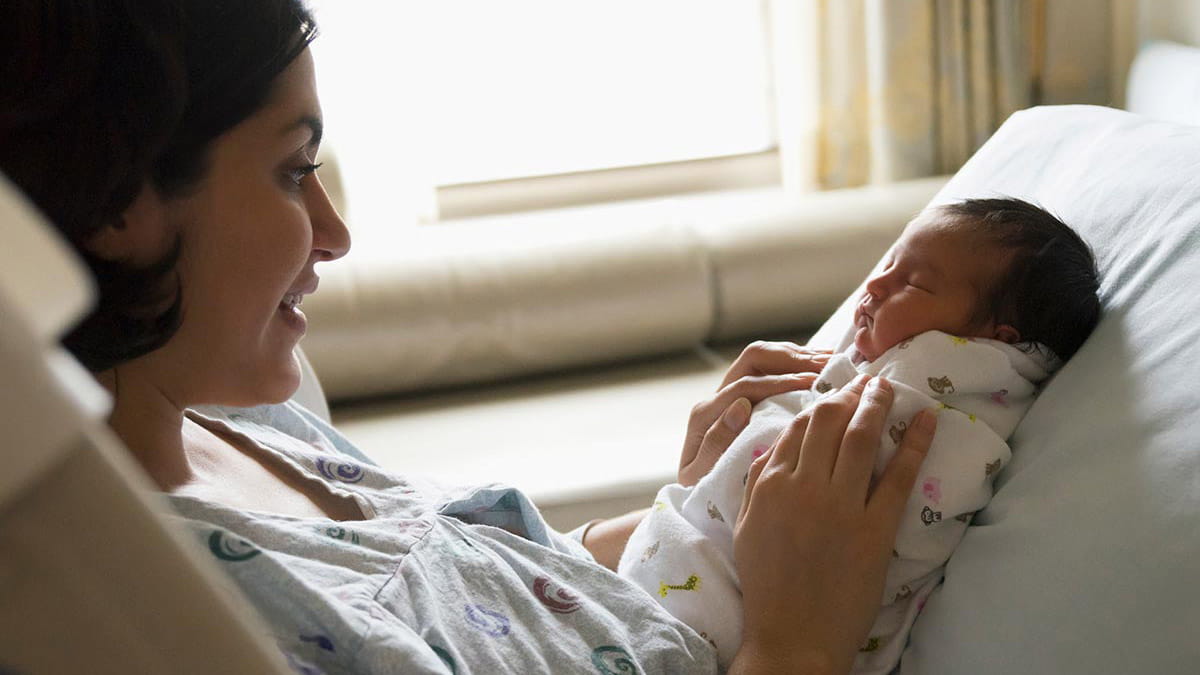Blog article
Public or private? Knowing your options

We discuss the differences between having a baby in the public and private health systems, and explain important factors to consider, including inpatient and outpatient services, waiting lists and specialist fees.
Going public
The main reason parents opt to have their baby in the public health system is because it generally costs less than having your baby in the private system. If you have a Medicare card, the cost of pregnancy care and having a baby in the public system can range from nothing to $1,5001. If you have your baby in the public system, consultations and healthcare performed by obstetricians, anaesthetists and paediatricians for you and your baby are often fully covered by Medicare.
During your pregnancy, you may experience out of pocket costs for appointments with your general practitioner (GP) if they don’t bulk bill patients. Other expenses, which may be partially covered by Medicare, but still attract an out of pocket cost, include: blood tests, ultrasound scans, antenatal classes and consultations with a doula, if you choose to hire one. Your total out of pocket will largely be determined by the healthcare providers you choose to go with.
As with most things in life, when you opt for a service that costs less than others, you're likely to make some compromises on quality and experience.
Some things to consider if you choose to go public, include:
Access to specialists
Your healthcare check-ups during pregnancy are likely to be predominantly with a midwife, as opposed to an obstetrician.
Choice of specialist
You will not get to choose which obstetrician delivers your baby.
Continuity of care
When you have health check-ups during your pregnancy, you may see a different midwife or obstetrician each time. It generally depends on who is on duty at the time.
Length of stay in hospital
Patients in public hospitals are, on average, discharged two days after giving birth, which is a shorter length of stay than patients who give birth in private hospitals1.
Experience while in hospital
You may have to spend the days after giving birth in a shared room with other patients and your partner (or main support person) is not guaranteed to be able to stay overnight in the hospital with you.
Going private
Having a baby is one of the most special experiences in life. Parents who choose to have their baby in the private system most often do so because they value the added choice, continuity of care and overall level of comfort they experience during pregnancy, and in the days immediately following the birth. If you have private health insurance (with maternity cover), the cost of having a baby, including healthcare during pregnancy, will start from approximately $3,000. We list these costs on pages 10-18 of the HBF Maternity Report2. Parents are prepared to pay more for:
Choice of specialist
You can choose your obstetrician, so you can be almost certain your chosen obstetrician will be the obstetrician who delivers your baby.
Access to specialists
During pregnancy, you have regular healthcare check-ups with the obstetrician you’ve chosen to deliver your baby. Your obstetrician, generally, has a small team that comprises a midwife, paediatrician, anaesthetist and fellow obstetricians who they work with regularly, so you get access to them through your obstetrician too.
Continuity of care
When you have health check-ups during your pregnancy, they are all with your obstetrician of choice, or their small team of specialists, such as their dedicated midwife. You will know who you will see at each appointment.
Length of stay in hospital
HBF members in private hospitals are, on average, discharged three days after a natural, uncomplicated delivery, and five days after a caesarean-birth, which is a longer length of stay, on average, compared to patients who give birth in public hospitals.
Experience while in hospital
After the delivery, you’re likely to stay in a private room, which often includes a bed for your partner (or support person) so they can spend the first few nights with you and your new baby.
The extra time in hospital before discharge allows you to access additional advice and support from specialist healthcare providers such as neonatal paediatricians, physiotherapists, obstetricians, midwives and nurses on things like breastfeeding, settling your baby, and post-natal recovery exercises.

Important things to know if you’re thinking about going private
Waiting periods
Generally, Australian private health insurers require members to serve a 12-month waiting period before they begin claiming benefits (money back) for maternity-related healthcare services in hospital. This means, if you’re thinking about starting a family, you should ensure your private hospital insurance policy includes maternity cover. It is important to serve your 12-month waiting period prior to your due date.
Inpatient and outpatient services
Under Australian law, health insurers are only allowed to pay a hospital insurance benefit on inpatient services. An inpatient is a patient who is admitted into hospital for medical treatment.
Maternity-related services you’re likely to receive as an inpatient (and therefore will receive a benefit for if you have private hospital insurance, with maternity cover included in your policy), include:
- Hospital accommodation
- Theatre and surgical fees
- Specialists’ fees (such as obstetricians and anaesthetists)
- In-hospital pharmaceuticals and dressings
- Diagnostic tests
The average out of pocket an HBF member paid per birth (July 2019 to June 2020) for the above inpatient services was $305. The average amount HBF paid for members, per birth, was $9,395.
An outpatient is a patient who receives medical treatment, but does not require admission to hospital. By law, health funds cannot pay a hospital insurance benefit on any treatment you receive as an outpatient and you’ll have to rely on a Medicare benefit to reduce your out of pocket expense.
Specialist fees
For deliveries in private hospitals, one of the main reasons out of pocket costs vary for different patients is the disparity between specialist fees. In a private hospital, the government will pay 75 per cent of a set rate (this is the Medicare Schedule Fee), and your private health insurer pays the remaining 25 per cent. However, if specialists such as your obstetrician, paediatrician or anaesthetist choose to charge over the schedule rate, you will need to cover the difference. This is commonly referred to as the ‘gap’ or ‘out of pocket cost’.
1 Raising Children Network - Public hospitals: pregnancy care and birth (2017)
2 HBF - Maternity Report (2017)



